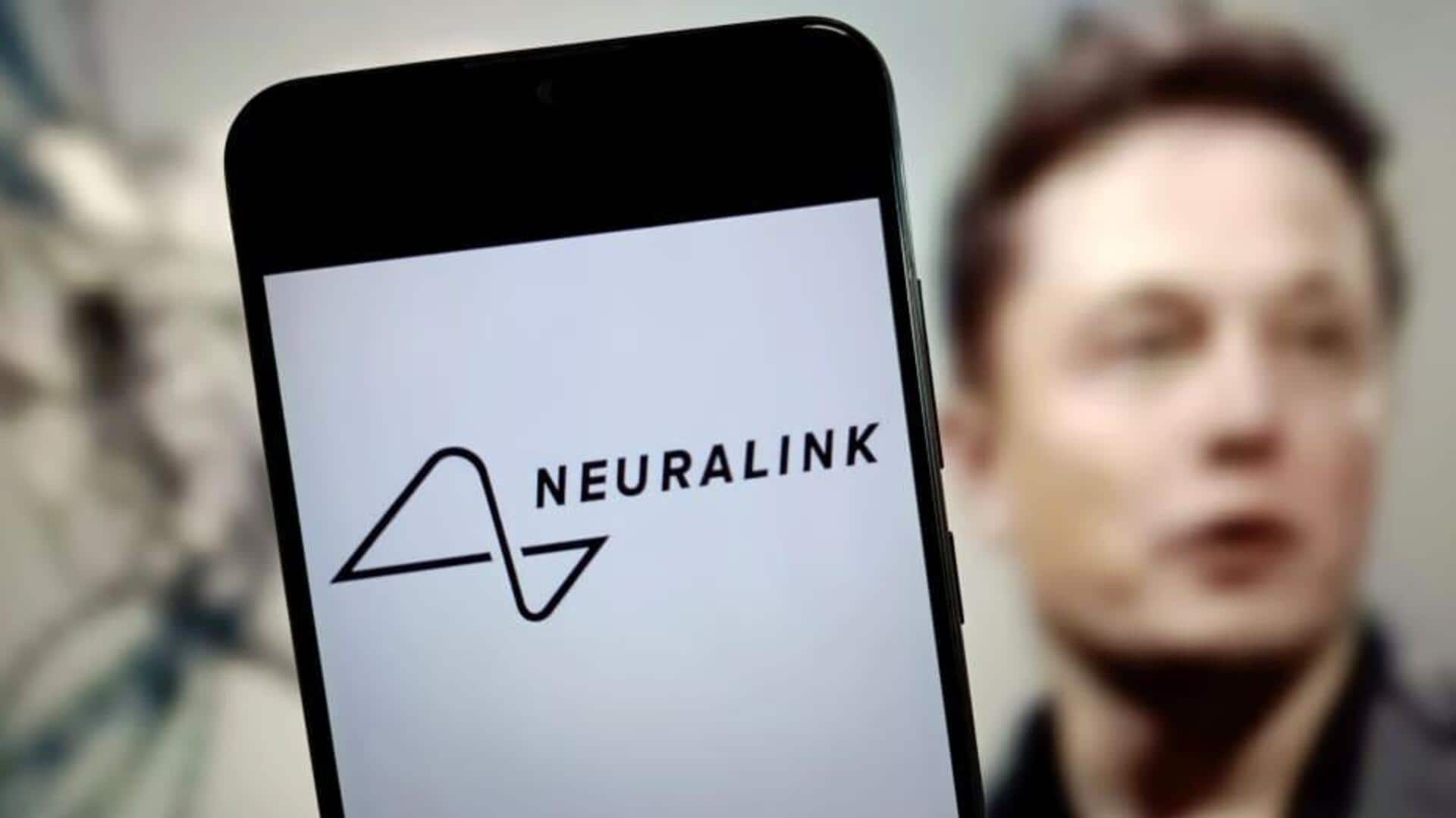
Musk's Neuralink implants brain chip in human for first time
What's the story
Neuralink installed a brain-chip implant in a human for the first time on Sunday who is recovering well, the neurotechnology company's billionaire mastermind Elon Musk has revealed on X. Musk further mentioned that "initial results show promising neuron spike detection." Spikes are activity by neurons—cells employing electrical/chemical signals to transmit information within the brain and throughout the body. The US Food and Drug Administration (FDA) gave the green light last year to Neuralink for conduct its first human trial.
Twitter Post
Take a look at Musk's post
The first human received an implant from @Neuralink yesterday and is recovering well.
— Elon Musk (@elonmusk) January 29, 2024
Initial results show promising neuron spike detection.
Use case
Implants can help individuals to operate computer through their thoughts
As stated by Neuralink, the research employs a robot for the precise placement of a brain-computer interface (BCI) implant in the brain area responsible for controlling the intention to move. The company's primary objective is to empower individuals to operate a computer cursor or keyboard solely through their thoughts—helpful in individuals with quadriplegia or paralysis. The "ultra-fine" threads of these implants assist in transmitting signals within participants' brains, per Neuralink. The first product would be named Telepathy, said Musk.
Twitter Post
'Telepathy' will be initially available to users with limb loss
Enables control of your phone or computer, and through them almost any device, just by thinking.
— Elon Musk (@elonmusk) January 30, 2024
Initial users will be those who have lost the use of their limbs.
Imagine if Stephen Hawking could communicate faster than a speed typist or auctioneer. That is the goal.
About the device
Neuralink's implant charges wirelessly
Neuralink's N1 brain chip is entirely implantable, undetectable cosmetically, and engineered to empower users in controlling a computer or mobile device wherever they are. Encased in a biocompatible enclosure, it is sealed hermetically (airtight). It is also capable of enduring physiological conditions far more severe than those within the human body. Like all chips, this one also requires power. The implant has a tiny battery that can be wirelessly charged through a compact, inductive charger.
Process
How is the chip implanted?
Due to the extreme fineness of the implant threads, manual insertion is impractical. Neuralink has developed a surgical robot to precisely and effectively place the chip and threads in the required locations. Equipped with five camera systems and optics necessary for optical coherence tomography (OCT), the robot head houses optics and sensors for guidance. Meanwhile, a needle, thinner than human hair, adeptly grips, inserts, and releases threads.
Working
How the chip can help a paralysed human use smartphone
The N1 brain chip has 1,024 electrodes distributed across 64 threads. Once implanted in a human brain within the region governing movement impulses, the chip records neural activity and signals, transmitting them wirelessly (over Bluetooth) to the Neuralink Application. This decoder app uses machine learning and AI to decode the data stream into actions and intents. By deciphering the instructions and converting neural impulses into on-screen actions, the system translates the user's thoughts into tangible outputs.
Previously
Violations and safety concerns
In February 2023, Neuralink faced fines for breaking United States Department of Transportation (DoT) regulations concerning the transportation of hazardous materials. Moreover, following reports of animal welfare concerns, American lawmakers have called for the Securities and Exchange Commission to investigate whether Neuralink misled investors about the safety of brain-chip implants. As per Musk, however, "no monkey has died as a result of a Neuralink implant." He added that the company used "terminal" monkeys to minimize risk to healthy ones.
Future implication
Symbiotic bond between humans and AI?
Neuralink's technology will primarily operate via an implant known as the "Link," a device roughly the size of five stacked coins that requires invasive surgery for placement within the human brain. At present, the goal is to enhance human abilities and address neurological conditions. However, with technological advancements, maybe one day the company might eventually establish a symbiotic relationship between humans and artificial intelligence.
Information
Neuralink was founded in 2016
California-based Neuralink was co-founded by Musk in 2016, with an aim to establish direct communication pathways between the human brain and computers. According to Pitchbook, a data company, the firm employed over 400 staff last year and secured funding of at least $363 million.